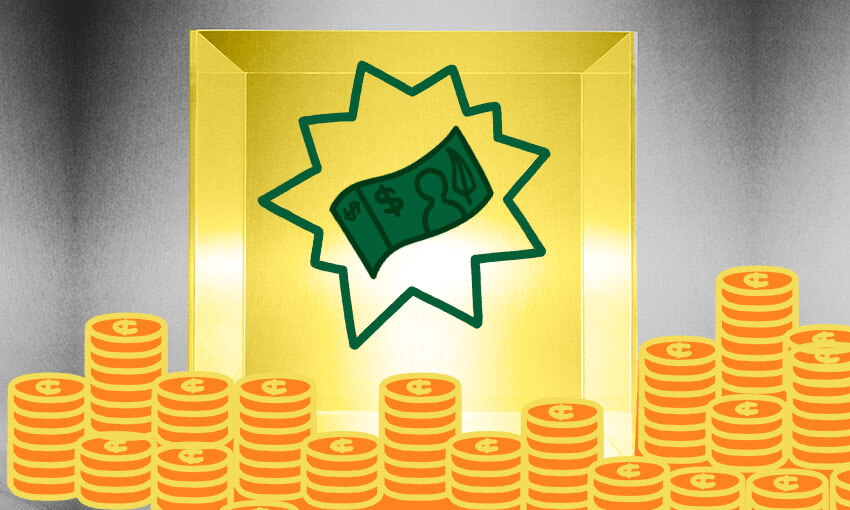Lockdown changed everything, but how did it change how we save – and spend – our money?
There’s no question that lockdown changed our lives. It’s changed the way we live, the way we work, the way we relax. Unsurprisingly, it’s also changed the way that we approach money.
There are the obvious impacts. For the individual, there’s the loss of work, and potentially the complete derailment of a career. For business owners, there’s the potential collapse of business, or the cost of lockdown slowly chipping away at savings and reserves. Wage subsidies are lifelines and band-aids; they don’t replace an income and they don’t replace savings. That’s all before you look at how much we didn’t spend – on haircuts, on going out, on other luxuries.
But there are also long term impacts, financially. I spoke to Martin Hawes, a retired financial advisor and author of numerous books on personal finance, about what lessons he expects people to take from this year’s lockdown.
We’re going to start having emergency savings – hopefully
You know about savings, sure. They’re what we’re all supposed to have, whether we’re saving for a house, a holiday, a retirement, or some combination of the three. But emergency savings are what you need to have when the storm comes and uproots not just your plans but everything else.
“The idea is that there could be emergencies that stop your income,” says Hawes. “Most advisers think that people should have three months – though some would say six months – after some kind of emergency.” That means if you earned $40,000 per annum after tax, you should have $10,000 to $20,000 in emergency funds.
He puts it simply: “Most people do not have anything like this and last year Covid-19 exposed this.”
MoneyHub reported last year that only one in three New Zealanders could last more than a month (financially) if they lost their job. Even more worryingly, only one in four could last more than three months. This means that nearly two thirds of New Zealanders don’t have enough savings to get them through three months of no income. (Remember, this year’s lockdown lasted more than three months.)
If that’s not scary enough, Stuff reported that, although ASB Bank said most households had more saved in their bank accounts midway through the lockdown than after, a large portion of its customers were coping with “less than $1000 in savings”. Last year, pre-pandemic, Finder reported that 15% of New Zealanders could survive on their savings for less than a week.
Hawes thinks the desire to have emergency savings will stick around for some years to come. Covid-19 has been more than just a shock to the system, it’s been a full 1940s film style shaking by the shoulders. He flags a caveat, however.
“It will probably gradually drop off when another generation comes up. A new generation, a generation of 20-year-olds, will get advice from their parents about holding emergency money, and then they just shrug their shoulders and think they’re being bloody silly, and take no notice of it.”
In short, we have to hope that the next generation becomes the first to listen to their predecessors. Good luck, world!
We fell in love with investing in shares
“I think people are taking money more seriously,” says Hawes. He believes that this year made people more concerned about their money. “That’s because people have time on their hands to start thinking about their money and realising just how important this fund stuff actually is to their lives.”
One way they’re taking their money more seriously? Investing in shares.
The figures bear this out. Stuff reported this year that 38.2% of us either currently, or plan to use, micro-investing platforms – the likes of Sharesies, Hatch and Stake. Unlike traditional stock investing, micro-investing requires neither a stockbroker nor large sums of money, allowing everyday investors to buy shares – or even fractions of a share – on stock exchanges here and abroad. Just last month, the Herald reported that the average New Zealander’s desire to own property was declining, in favour of investing in owning shares. Admittedly the survey was carried out by Sharesies, which has a vested interest in promoting share investing, and may also be more reflective of first-home buyers’ despondency than any sea change in financial attitudes.
Hawes found that over lockdown especially, many younger people re-examined their lives. “In a lot of cases, there were two partners working, and then the lockdown hit, and in a lot of cases one stopped working or at least slowed down working, and one is looking after children while the other is working.
“They found shares and started investing in them.”
While he’s sure that people will continue to invest in shares, a major drop in the market might drive them away. “But, provided the market continues to perform extremely well, I think people will continue to invest in it and then it will become a habit.”
If you’re looking to hop on the share-investing trend post-lockdown, you can find our guide to investing right here, and check out our tips on staying safe while investing online right here.
